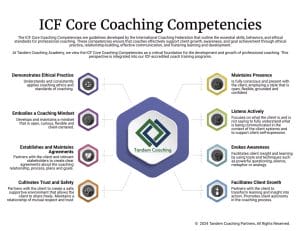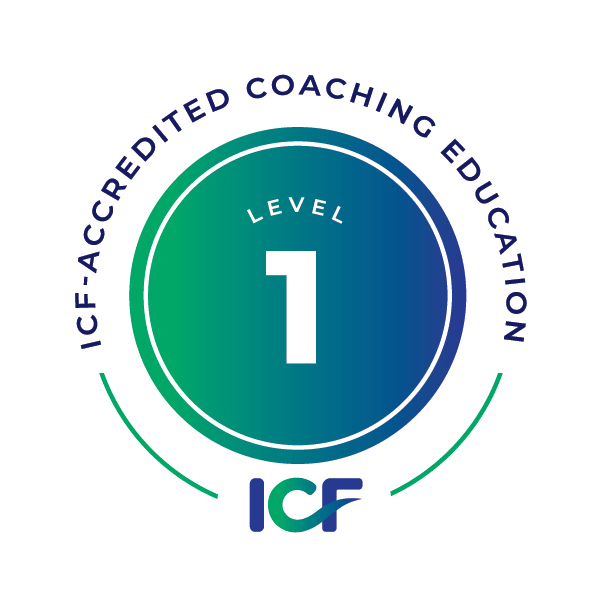The last few articles introduced concepts in co-creating the relationship with the client. In this article, we take a closer look at competency 3: Establishes and Maintains Agreements. These next markers of competency are all about creating a strong coaching session agreement. Competency markers support the concepts in this article:
- Partners with the client to identify or reconfirm what they want to accomplish in the session
- Partners with the client to define what the client believes they need to address or resolve to achieve what they want to accomplish in the session
- Partners with the client to define or reconfirm measures of success for what the client wants to accomplish in the coaching engagement or individual session
One thing that sets a coaching conversation apart from a general discussion is the coaching (session) agreement. The session agreement is how the coach and client partner know what the coach and client want to achieve in the time they have together, how they will know they have reached the session’s purpose, and how they need to work through the topic. A strong session agreement makes all the difference between a wandering conversation. The coach ends up trying to solve the client’s problems and a focused discussion where learning and progress are made with the client holding the agenda. When done well, the client often creates a lot of progress and gains a tremendous amount of awareness while determining the session agreement. The critical thing for the coach to remember is that the session agreement is not something that happens before the coaching begins – it is coaching.
When coaches look at the coaching agreement as something that happens before the coaching begins, the agreement ends up being mechanical, check the box style, and “meets the competency markers” but doesn’t provide the best value to the client. Coaches do best to understand that 1) the purpose of coaching is to create awareness in the client – not just get to a list of next steps, and 2) the coaching begins at “hello.” I mean by “the coaching begins at hello” because the coaching agreement isn’t a checklist to get through so you can begin coaching. It is coaching. When taking this approach, the coaching agreement can be a discovery process for the client, not just about what they want to accomplish but underneath.
Partnering with the client to identify what they want to confirm or accomplish in the session is a discovery process. This means that the coach needs to dig beneath the surface and not just accept the client’s first thing as the goal. Clients often don’t know what they want to accomplish until they have explored it a bit. They generally know the conversation topics but can rarely say, “Here is the goal and measures of success.” The goal’s clarification and how the coach and client will know that the goal has been achieved is a process. Therefore, the coach needs to dig beneath the surface with questions like What is bringing this topic to the surface today? What is the impact of what is happening? What would you like to be different? What is stopping this from happening? What do you need to know to resolve this? Why is this important for you? Where are you on this topic right now? Where would you like to be? What’s in the gap between where you are now and where you want to be? What will tell you that you have a feasible plan in place? How will you know that you have arrived at the destination of our conversation? What is the outcome you hope to achieve today through our discussion? What impact will this have when you leave? How does this tie back to your larger goals? What do you want to know when we are finished that you don’t know right now?
Keep in mind that while I have given a list of example questions here, that doesn’t mean that these are a checklist or that they will even fit appropriately into the conversation with your client. That’s where presence and partnership with the client come in. You must be curious. You must listen to the client. You must pull on the strings that the client presents to you. It’s your job to explore the human behind the topic. Your questions should be responsive and reflective of what the client just said. As the coach, you hold the process to ensure that the client moves through the coaching conversation to bring them to where they want to be. To do that, you must first help them discover where they want to go.
Enjoying this so far? Keep exploring our ICF Core Competencies Series for deeper insights into these essential coaching skills:
- Ethical Coaching,
- Coaching Mindset,
- Cultural Awareness,
- Coaching Presence,
- Active Listening,
- and Self-Awareness
Contact us today to begin your certification journey and build your core competencies.

Unlock Your Coaching Potential with Tandem!
Dive into the essence of effective coaching with our exclusive brochure, meticulously crafted to help you master the ICF Core Coaching Competencies.
"*" indicates required fields
About the Author
Cherie Silas, MCC
She has over 20 years of experience as a corporate leader and uses that background to partner with business executives and their leadership teams to identify and solve their most challenging people, process, and business problems in measurable ways.
















